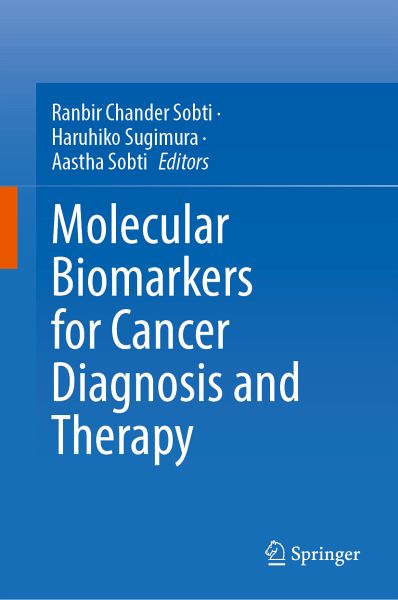
Molecular Biomarkers for Cancer Diagnosis and Therapy (eBook, PDF)
Versandkostenfrei!
Sofort per Download lieferbar
200,95 €
inkl. MwSt.
Weitere Ausgaben:

PAYBACK Punkte
100 °P sammeln!
This book presents recent advancements, challenges, and clinical implications of molecular biomarkers in various cancers. This book highlights the clinical applications of biomarkers are extensive for cancer risk assessment, screening and early detection of cancer, accurate diagnosis, patient prognosis, prediction of response to therapy, and cancer surveillance and monitoring response. It also explores the progress of predictive biomarkers as an adjunctive tool to tumor immunotherapy in effectively identifying the efficacy of immune checkpoint inhibitors and discusses their future directions i...
This book presents recent advancements, challenges, and clinical implications of molecular biomarkers in various cancers. This book highlights the clinical applications of biomarkers are extensive for cancer risk assessment, screening and early detection of cancer, accurate diagnosis, patient prognosis, prediction of response to therapy, and cancer surveillance and monitoring response. It also explores the progress of predictive biomarkers as an adjunctive tool to tumor immunotherapy in effectively identifying the efficacy of immune checkpoint inhibitors and discusses their future directions in achieving precision immuno-oncology. Further, the book examines the combination of next-generation sequencing and advanced computational data analysis approaches in the understanding of the genomic underpinnings of cancer development and progression. Towards the end, the chapter discusses the role of some commonly investigated phytochemicals and their epigenetic targets that are of particularinterest in cancer prevention and cancer therapy. It is a must for researchers as well as advanced students and physicians in the field of cancer and clinical oncologists.
Dieser Download kann aus rechtlichen Gründen nur mit Rechnungsadresse in A, B, BG, CY, CZ, D, DK, EW, E, FIN, F, GR, HR, H, IRL, I, LT, L, LR, M, NL, PL, P, R, S, SLO, SK ausgeliefert werden.












